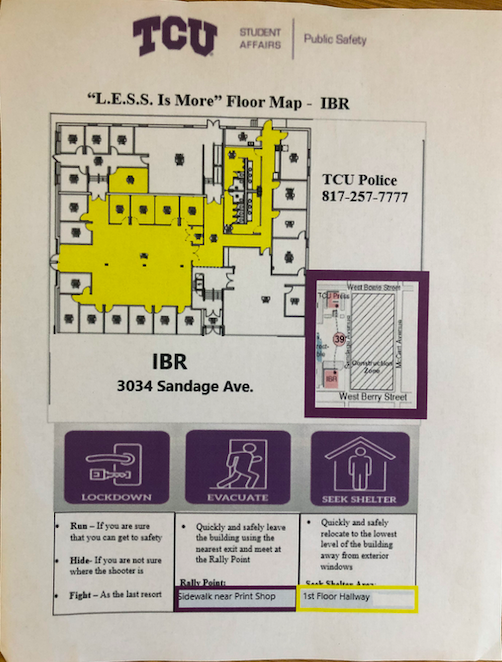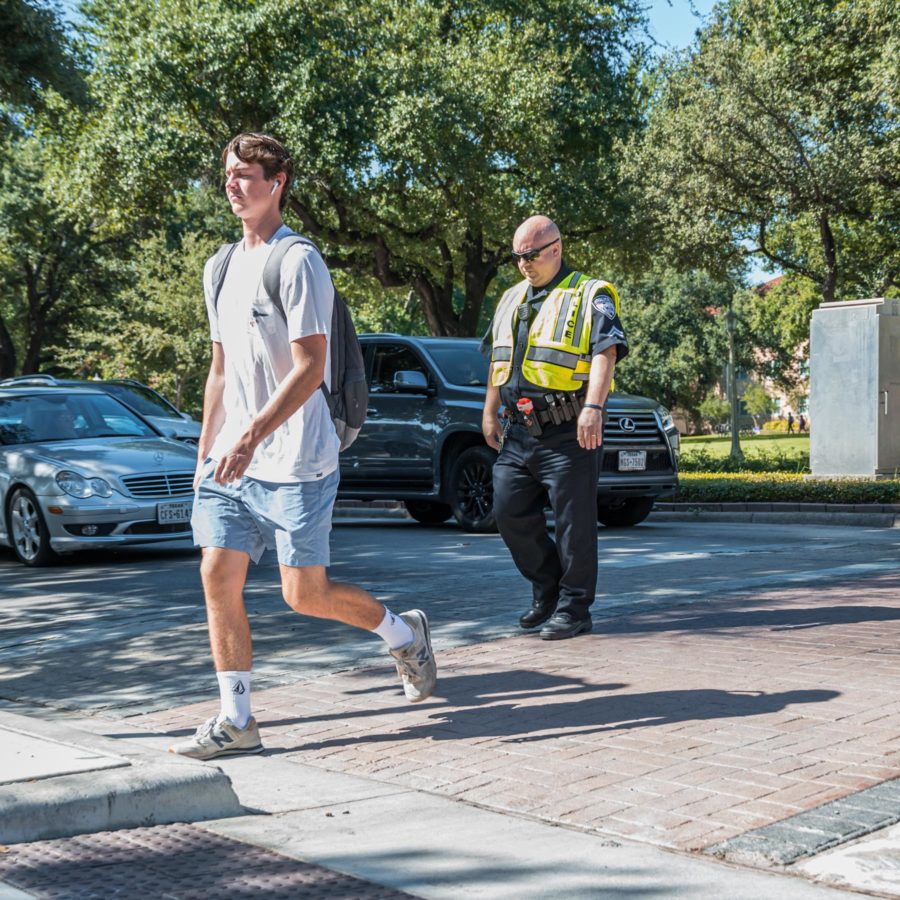
In the wake of recent mass shootings and other threats to safety, TCU is taking precautions to ensure students and staff are prepared if an emergency occurs.
Over the past year and a half, TCU’s police department launched a campaign that teaches how to respond during a lockdown, evacuation or “seek shelter” situation.
The program, titled “L.E.S.S. is More,” an acronym that stands for “lockdown, evacuation or seek shelter,” functions as emergency responses needed to reduce damages and, more importantly, save lives.
The TCU police department is now requiring professors to include the safety protocols in their syllabi, according to Assistant Vice Chancellor for Public Safety Adrian Andrews.
“It is very important that we look at safety as a team sport,” Andrews said. “Everybody knows the police are going to try to keep everyone safe, but we ask that our students, our staff and faculty also contribute in making us safe as well.”
Dr. Jeanelle Hope, assistant professor of comparative race and ethnic studies, said she wasn’t aware of the requirement, but after taking a syllabus workshop during the summer she realized the importance of including the safety protocol.
“I think it’s fine,” Hope said. “A big concern that faculty often have, and that came in discussion during our Koehler Center workshop, is the size of a syllabus can get pretty lengthy.”
Despite the length, Hope said emergency preparedness is something all students should know about.
Andrews said he is not concerned with the length of the syllabi.
Professor of environmental sciences Kristen Argenbright said she also wasn’t aware of the requirement.
“It’s brand new [so] it’s going to take some training to let people know what’s going on,” Argenbright said. “It’s just that a lot of folks don’t know about the ‘L.E.S.S. is More’ program.”
In hopes of spreading awareness, the TCU Department of Public Safety created a pamphlet and diagram that shows “rally points” in case of an emergency. It also includes instructions on how to handle situations when a person’s safety is at risk.
“The syllabus makes the faculty responsible,” Andrews said. “They have to actually think about those young people who are sitting in front of them. They are responsible for their safety as well.”






